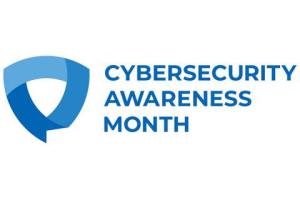It seems I'm always talking about security. By now I am sure most of you, if not all, have heard the story of how my son came by his first Eeyore stuffed animal. If not, he essentially found the sole surviving Eeyore in the Disney store, one overlooked and omitted from the stocking system, and made a beeline for the door. As a toddler dragging his newfound friend in tow, he was too short to set off the security scanner.
I share this with you for two reasons. It's a fond memory of my son's childhood. More importantly, it is a memorable illustration and lesson for all:
Even if you don't recognize what you have, that doesn't make it worthless and doesn't mean other people aren't willing to take it.
This has always been true and especially so, now. We are all accustomed to treating our work seriously. We take it, mold it, tweak it, massage it, copy it, print it, (e)mail it, and in so doing, producing the best product of which we are capable. All the while we have a collective duty to protect our work, products, students, instructors, and ourselves. DoCS has done well in fostering this behavior in our divisional culture.
However, we have not been in the office. We have not been in our customary routines and environment. It is easy for us to forget about little things, like security, while balancing the hectic duties of home and work life simultaneously.
To protect yourself at home, practice the good security hygiene used at work:
- Be careful with your email
- Don't open emails that are unusual or suspicious, that have unexpected attachments or unknown links. As our humble Ken Bilodeau says: "Don't click the link!"
- Be mindful of the information you have on your computer.
- Do you use accounting software? Tax software? Do you bank online? Trade stocks? These all leave valuable financial information on your computer that cybercriminals covet. Think about making backups of data files as well as moving the active files to a removable thumb or USB drive that can be disconnected while not in use.
- Consider the websites you visit.
- Viruses and malware can be delivered in many ways, particularly through advertisements and downloads from disreputable websites.
- Make sure to use (In)Private/Incognito browsing.
- Consider using ad-blocking extensions.
- Install antivirus with download protection. Rutgers offers antivirus for University and personally owned devices:
- University-owned: https://software.rutgers.edu/product/3473
- Personally owned: https://software.rutgers.edu/product/3474
- VPNs are your friend
- Many people use private VPNs to protect their information while using the Internet. Rutgers uses them to secure communication with University resources. There are many private VPN services that can offer you similar security for a nominal fee.
- Use strong passwords and consider a password manager.
- Passwords are an important security measure. We loathe to use them, change them, update them, and remember them. However, they are the front lines when it comes to protecting your access to everything information-based. Try using easy to remember phrases. There are many sites to help rate your password. Try this https://lastpass.com/howsecure.php
- Make a separate password for each site or service
- Use a password manager to keep them at hand and up to date! We will be rolling out a DoCS version shortly. Making a personal account is highly recommended and free.
October is Cybersecurity Awareness Month. Please read through the weekly newsletters we will be sending. I endeavor to keep them short, informative, and practical.
Wishing you safe computing!
